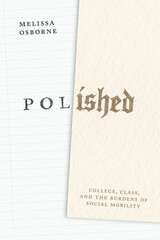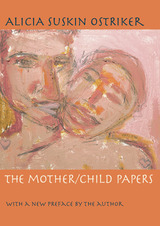
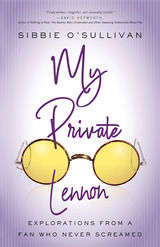
My Private Lennon charts the author’s realization that the Beatles, especially John Lennon, were a crucial force in her development. A radical departure from other books written by Beatles fans, My Private Lennon invites its readers to consider subjects not usually found in works about Lennon and the band, such as the constraints of memory, the male body, grief, the female breast, race, cultural issues, and the importance of privacy in our over-mediated world. In pieces that engage cultural issues and historical contexts, My Private Lennon creates a witty and provocative intimacy with readers who value the power of art to change one’s life and who love John Lennon and the Beatles.

The opening section marks a return for Pack to the musical sensuality of the lyric. These short lyrics are uniquely his: the sequence begins in Vermont and concludes in the Andromeda galaxy, providing an opportunity to hold in mind the nurturing sun of our solar system.
The poems of the collection's middle section, written in the flowing narrative and meditative mode familiar to Pack's many admirers, take up the themes of human sexuality and consciousness. And the final section, replete with puns and paradoxes, shows Pack at his most playful as he muses on art, technology, romantic and marital desire, and the stubborn longing for transcendence. The poet concludes the volume with a sobering plea, "The Trees Will Die," to heed the sun's example, to cherish and protect our planet and all its living things.
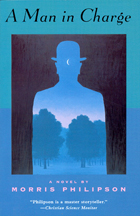
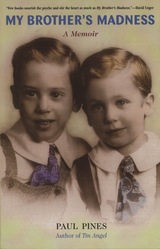
My Brother's Madness is part thriller, part exploration that not only describes the causes, character, and journey of mental illness, but also makes sense of it. It is ultimately a story of our own humanity, and answers the question, Am I my brother's keeper?
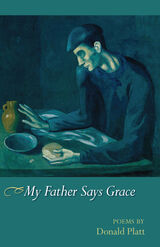



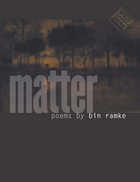
“When I was a saint,” begins the first poem, “I did not have visions but I could see and did note the color of the world.” Matter is an examination of and a report on the world’s variable colors and possibilities for, if not sanctity, then a certain sanity, a kindness, and some form of salvation.
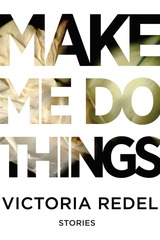
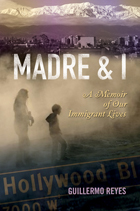
In one memorable scene, after realizing that her friend Carmen is cleaning the house of one of the producers of Annie Hall, María recruits her to take her picture as she poses dramatically with Mr. Joffe’s Oscar in hand. It is María’s defiant yet determined attitude amidst her sacrifices that allows for Guillermo’s spirited coming of age and coming out.
Their common ground is the drama of their encounters with discovery, heartbreak, and passion—the explosive emotions that light up the stage of their two-actor theater.
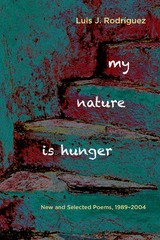
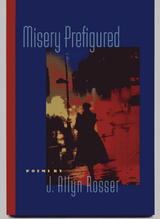
In her second collection of poems, J. Allyn Rosser explores the human condition in all its gloriously valiant pathos. Misery Prefigured dwells on our continual reinventions of self and world and the restless dynamic that vibrates between them.Whether contemplating a failed marriage, a visit from God, or a pearl dropped into a bottle of Prell shampoo, Rosser's wry yet impassioned eye looks hard for a habitable and abiding truth. Alternating between deadpan and dead serious, these poems are often darkly funny, exposing the contradictions inherent in every desire. Misery Prefigured is fueled by a cocky, unsentimental determination to make some consolatory sense of what passes for reality.
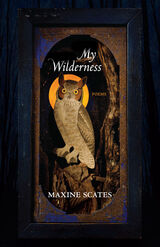
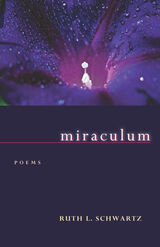
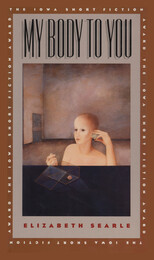
A woman in love with a gay man she calls Sister Kin attempts to escape the bonds of her own body. An eighteen-year-old virgin enters into a passionate affair with an older man who turns out to be a virgin of a different sort. A special education teacher in a school for aggressive teenagers finds herself attracted to another teacher, also female. An intelligent outcast girl bonds with her mindlessly seductive mother to form “one person.”
Searle reveals other characters through inventive and often comic feats of narrative daring. A girl grows into womanhood during a single family dinner that spans twenty years. A middle-aged wife, once dubbed “The First Most Beautiful Woman in the World,” watches her former selves parade before her family in a lively evening of home movies. Two women—one recently divorced, the other a group home resident in love with The Who—join forces as they figure out “What to Do in an Emergency.” An old woman experiences both physical breakdown and spiritual breakdown in a supermarket's vegetable department. A young woman is drawn into the emotional and sexual life of an autistic boy obsessed with the number 8.
Each of these stories is written in a language that strives to match the intensity of Searle's characters; each gives the reader an exceptionally intimate portrait of a unique female and the central, sensual mystery of her body.
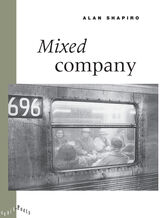
"What draws us into Alan Shapiro's Mixed Company is not a conspicuous felicity or any sort of bravura, but the quiet, undaunted way he goes after the truth of human feeling and motive. . . . The poems grope and conjecture, looking for understanding . . . but whatever may remain unsolved and insoluble, the poems are full of astonishing insights, a rare articulateness, and what another age called 'knowledge of the human heart.'" —Richard Wilbur
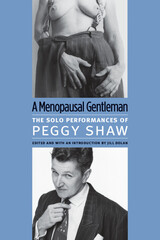
"With classic butch finesse---that handsome combination of vulnerability and toughness---Peggy Shaw pieces together the challenges of growing up butch in the 1950s. Shaw is an engaging performer and inspired writer."
---Gay Community News
Obie-award-winning performer and writer Peggy Shaw has been playing her gender-bending performances on Off Broadway, regional, and international stages for three decades. Co-founder of the renowned troupe Split Britches, Shaw has gone on to create memorable solo performances that mix achingly honest introspection with campy humor, reflecting on everything from her Irish-American working-class roots to her aging butch body.
This collection of Shaw's solo performance scripts evokes a 54-year-old grandmother who looks like a 35-year-old man (in her classic Menopausal Gentleman); a mother's ambivalent ministrations to a daughter she treated like a son (in the raw You're Just Like My Father); Shaw's love for her biracial grandson, for whom she models masculinity (in the musically punctuated To My Chagrin); and a mapping of her body's long, bittersweet history (in the lyrical Must: The Inside Story, a collaboration with the UK's Clod Ensemble). The book also includes a selection of Shaw's other classic monologues and an extensive introduction by Jill Dolan, Professor of English and Theater and Dance at Princeton University and the blogger behind The Feminist Spectator website.
A volume in the series Triangulations: Lesbian/Gay/Queer Theater/Drama/Performance
Cover photos by Eva Weiss (top) and Robin Holland/robinholland.com (bottom).
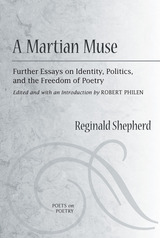
Those who have read Orpheus in the Bronx, Reginald Shepherd's previous collection of essays about the act of creating poetry, and those who take on the task, can immediately understand why it was a national finalist for a prestigious National Book Critics Circle Award. Shepherd was candid and disarming, practical and funny, able to mix thoughts about the Transformers with meditations on the realities of growing up poor.
This is Reginald Shepherd's final opportunity to speak his mind about the craft he loved, the art of using words to express the soul and the wit of every person's experience. Edited by Shepherd's longtime partner and intellectual confidant, Robert Philen, A Martian Muse stands as a final monument to a master in the craft, but is also a readable, important work in its own right.
"Reginald Shepherd died September 10, 2008, after a hard struggle with cancer. While he had completed the essays presented here and had selected them from his available essays to form a collection, he didn't have time to organize the presentation of the essays within the collection.
"The task of editing this collection has been a daunting challenge as I struggle to live up to the level of intellectual engagement, clarity, and coherence that Reginald always expected. While daunting, it has also been a labor of love and a compulsion for me, based on the many years I spent with him as a partner, friend, lover, intellectual companion, and sharer of common passions."
---Robert Philen, from the Introduction
Reginald Shepherd was the editor of The Iowa Anthology of New American Poetries and Lyric Postmodernisms: An Anthology of Contemporary Innovative Poetries and the author of five books of poetry. He was a finalist for the 2009 National Book Critics Circle Award and was the recipient of grants from the NEA, the Illinois Arts Council, the Saltonstall Foundation, the Florida Arts Council, and the Vogelstein Foundation, among many other awards and honors.
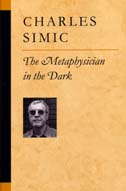
Often, he addresses poetry itself. Among the pieces here are appreciations of Mark Strand, James Merrill, John Ashbery, and James Tate, each evaluated with a keen eye tempered by a generous spirit. Other essays discuss Joseph Brodsky, Czeslaw Milosz, and Vasko Popa; to these writers he brings the understanding available only to those who can read them in the original. In considering Brodsky's translations, for instance, he offers insights regarding not only the poet himself but the very nature of language. Elsewhere, he peers into poetry's past and its future: as a vessel of memory, a witness to history, and a mirror of human experience.
But perhaps the greatest pleasures afforded by The Metaphysician in the Dark, as he styles himself with a beguiling mix of modesty and irony, appear when Simic goes further afield. His look at the deadpan comedy of Buster Keaton is as revealing of the author as of the actor and his craft; his perusal of a Heironymous Bosch altarpiece captures both the painter's sense of apocalypse and a riotous joy in the piling of detail upon detail; his review of a book on Joseph Cornell examines how obsession becomes art. He is fluently familiar with subjects as diverse as Saul Bellow's novels and Aberlardo Morell's extraordinary camera obscura photographs. Yet when he takes the gloves off, as in two essays on the Serbia of Slobodan Milosevic, his outrage is as forceful as his pride is strong in his own Serbian heritage.
Each of the two dozen essays here reflects a sophistication irresistible in its simplicity; taken together, they display a questing intelligence and a panorama of life and art.
Charles Simic is an acclaimed poet, novelist, essayist and teacher. Winner of a MacArthur Fellowship and a Pulitzer Prize, he is the author of more than twenty volumes of poetry and six books of prose, as well as numerous translations. He is Distinguished University Professor of English at the University of New Hampshire, where he has taught since 1973.

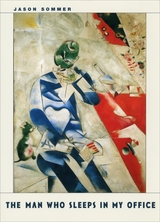
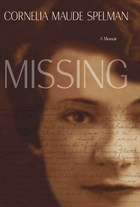
Acclaimed children’s book author Cornelia Maude Spelman’s memoir of her family springs from a meeting and subsequent friendship with the late, legendary New Yorker editor William MaxwellIn the 1920s, he and her parents had been friends as undergraduates at the University of Illinois at Urbana-Champaign. When Spelman hints at what she thinks of as the failure of her parents’ lives, he counters that “in a good novel one doesn’t look for a success story, but for a story that moves one with its human drama and richness of experience.”
At their final meeting, Maxwell encourages her to tell her mother’s story. Missing is Spelman’s response to Maxwell’s wisdom. With the pacing of the mystery novels her mother loved, and using everything from letters and interviews to the family’s quotidian paper trail—medical records, telegrams, and other oft-overlooked clues to a family’s history—Spelman reconstructs her mother’s life and untimely death. Along the way, she unravels mysteries of her family, including the fate of her long lost older brother.
Spelman skillfully draws the reader into the elation and sorrow that accompany the discovery of a family’s past. A profoundly loving yet honest elegy, Missing is, like the woman it memorializes, complex and beautiful.

A woman meets a man and falls in love. She is sixty, a writer and lifelong New Yorker raised by garmentos. She thought this kind of thing wouldn’t happen again. He is English, so who knows what he thinks. He is fifty-six, a professor now living in Arizona, the son of a bespoke tailor. As the first of Laurie Stone’s linked stories begins, the writer contemplates what life would be like in the desert with the professor. As we learn how she became the person she is, we also come to know the artists and politics of the downtown scene of the ’70s, ’80s, and ’90s, a cultural milieu that remains alive in her. In sharply etched prose, Stone presents a woman constantly seduced by strangers, language, the streets— even a wildlife trail. Her characters realize that they feel at home in dislocation—in always living in two places at the same time: east and west, past and present, the bed and the grave (or copper urn). Love may not last, the writer knows. Then again, when has anything you thought about the future turned out right?

Thompson’s artfully concatenated vignettes form a mosaic that maps the insightful mind behind the elegant and enigmatic persona Keller projected. Thompson takes readers on the journey of Keller’s life, from some of the thirty-seven countries she visited, including the British Isles, Europe, and Japan to the wellsprings of her emotional awakening and insight. The poems are paired with fascinating biographical anecdotes from Keller’s life and samplings from her writing, which infuse the work with richly-rewarding biographical detail.
The poems in The Myth of Water reveal the discerning subtlety, resiliency, and complexity of the person Thompson perceives Helen Keller to have been. Through a combination of natural intuition, manual signs, Braille alphabets, and lip reading, Keller came to grasp the revolving tapestry of the seasons and the infinite colors of human relationships.
Not a biography or a fictional retelling, The Myth of Water attempts to unlock what moved Keller to her life of service and self-examination. This is a deeply personal story of coming through—not overcoming—a double disability to a fully realized life in which a woman gives her heart to the world.
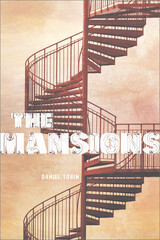
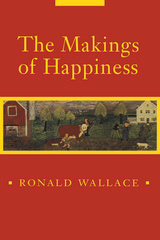
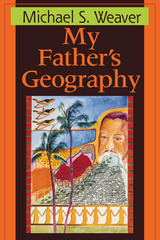

Parker goes under the knife in The Man with the Getaway Face, changing his face to escape the mob and a contract on his life. Along the way he scores his biggest heist yet, but there’s a catch—a beautiful, dangerous catch who goes by the name Alma.

The Mourner is a story of convergence—of cultures and of guys with guns. Hot on the trail of a statue stolen from a fifteenth-century French tomb, Parker enters a world of eccentric art collectors, greedy foreign officials, and shady KGB agents. Hired by a shifty dame who has something he needs, Parker will find out just who intends to bury whom—and who he needs to kill to finish the job.
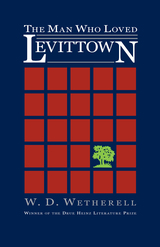
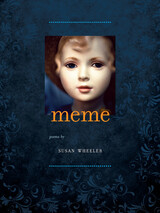
Wheeler reconstructs her mother’s voice—down to its cynicism and its mid twentieth-century midwestern vernacular—in “The Maud Poems,” a voice that takes a more aggressive, vituperative turn in “The Devil—or—The Introjects.” In the book’s third long sequence, a generational inheritance feeds cultural transmission in “The Split.” A set of variations on losses and break-ups—wildly, darkly funny throughout and, in places, devastatingly sad—“The Split” brings Wheeler’s lauded inventiveness, wit, and insight to the profound loss of love. One read, and the meme “Should I stay or should I go?” will be altered in your head forever.
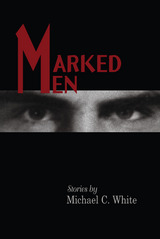
From Michael C. White, the author of the critically acclaimed novels A Brother's Blood and The Blind Side of the Heart, comes a new book, Marked Men. It is a gripping collection of twelve wide-ranging stories about those unexpected moments in our lives when the layers of our defenses are peeled away, one by one, and we are left with the harsh inevitability of our fates. Touching on themes of loneliness and isolation, Marked Men deals with characters who have been alienated from society, from family and friends, from their past, and sometimes from their own feelings.
In "Heights," we meet a young woman whose husband is paralyzed and who must come to grips with the life she now finds herself inhabiting; in "Disturbances," a doctor is called to the scene of a brutal murder, only to discover he will be asked to do much more than pronounce the man dead; in "Burn Patterns," an arson investigator traveling to the scene of a fire picks up a young runaway drifter, an event that causes him to reflect on his own failed marriage; in "The Crossing," a recent widow learns to deal with her fears regarding her alien new life; and in "The Cardiologist's House," the narrator builds model houses at night when he can't sleep and at the same time keeps watch on a neighbor who is having an affair.
These are powerful and moving stories told in White's distinctive style. His earlier prose has been hailed by the New York Times as "stunningly well written" and by Booklist as "remarkable." Engaging the reader from the first line, White provides a suspenseful and surprise-filled journey as his characters face and resolve their conflicts.

Lex Williford's seriously eccentric characters find that traveling down life's highway leads to the breakdown lane as quickly as it leads to the fast lane. Their quirky philosophy can best be summed up by Bucklin Rudd, who just lost his business and his wife after losing the last bit of his good sense: “Nothing like working half your life for something just to find out you think you're pretty damn sure you don't want it.” The ten stories in Macauley's Thumb—set variously in Texas, Old and New Mexico, Oklahoma, Arkansas, Alabama, and Illinois—explore the complicated lives of disenchanted characters who find ways to express their grief at the losses they face under impossible circumstances, losses so large and so small that no one—not even Smiling Joe's insurance—can cover them.
A husband and wife, unable to speak to each other without arguing, face the dissolution of their marriage when they smuggle his mother's body out of Mexico. Two boys, confronting abandonment by their father, go to the Texas State Fair and stumble upon a way to get their mother out of bed. Thomas “Hoot” Ponder and his nephew find common ground in whiskey and storytelling amid the comedy surrounding death and dying. A chiropractor who loves science fiction movies struggles with his sexual fantasies about one of his patients, a Wal-Mart cashier who can't stop talking about her pain. In the powerful title story, Cal Macauley—driven mad by his wife's horrible death—faces mourning, regret, and the inevitability of forgetting by striking out against himself and the rattlesnakes on his mountain.
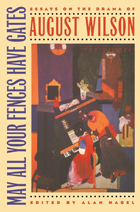
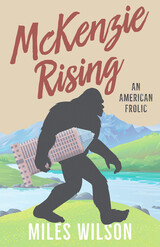
Their work is countered by a Dickensian ensemble of characters, many of whom are chronically sidetracked from the heroic community purpose by various amatory diversions. Given that the protesters include such locals as D.B. Cooper (the long-vanished airplane hijacker) and Sasquatch, in all his odoriferous glory, the reader is in for a rollicking but powerfully thought-provoking journey.
A lusty, environmental picaresque, McKenzie Rising satirizes our shortfalls, while celebrating our resilience and the triumph of community. The book offers a corrective to some of the amendable follies we lug with us as we careen into the (post)-Trump, (post)-COVID era.
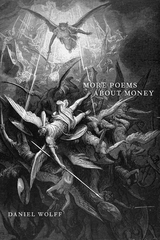

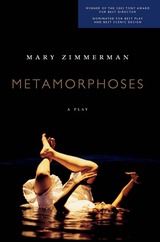

Sadie knows Tinley must be lying because Mark was engaged and never would have betrayed his fiancée. So she refuses to help, and she doesn’t breathe a word about it to anybody. But in a small, southern town like Garnet, nothing stays secret for long.
Once Sadie starts piecing together what happened to Mark, she discovers she was wrong about Tinley. And when her husband is rushed to the hospital, Sadie must hurry to undo her mistake before he runs out of time to meet their grandchild.
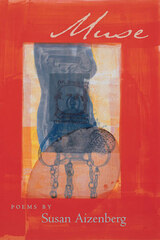
Muse, the first full-length collection from poet Susan Aizenberg, brings together poems of personal history, elegy, and the complex lives of artists, writers, and “ordinary” people, in an exploration of the relationship between art and life, esthetics and ethics. She is sharp-eyed in purpose, trying to understand “what love is” in a continual shifting between loss and knowledge. While “there is no other world than this one” for Aizenberg, nevertheless she finds a world of affirmation. Aizenberg sings elegant blues, keeps a perfect balance between elaboration and restraint with formal skill that is both impressive and consoling, reminding us that poetry is a form of intelligence in which music creates a world full of mystery and depth.
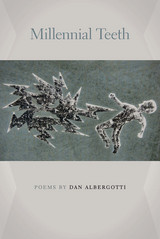
Both bleak and bewildering, Millennial Teeth, the visceral new collection by poet Dan Albergotti, maps a contradictory journey filled with longing and dread, cynicism and hope. A heady mix of traditional forms and more experimental verse, Albergotti’s volume lures readers inexorably into the poet’s obsessions with mystery, doubt, ephemerality, and silence.
The poetry in Millennial Teeth will feel both refreshingly new and strangely familiar to Albergotti’s audience. Some poems pay direct tribute to such literary luminaries as Wallace Stevens and Philip Larkin, while others give nods to icons of pop culture, from Radiohead to Roman Polanski. The narrator muses on the resurrection of Christina the Astonishing, the works of Coleridge, and the mindless duties of minor players in Shakespeare’s Hamlet.
Yet these familiar faces are not our friends; they are juxtaposed with the heartbreaking apocalypses, both natural and man-made, that have plagued the world since the first plane flew into the World Trade Center. A reluctant witness to such events, the narrator of these poems attempts to navigate his own personal crises, including the mental illness and dementia of loved ones and the inability to connect with others, from the darkness of a personal orbit far from the sun. As he vehemently rejects the notions of religious succor, immortality, and the passive acceptance of fate, he simultaneously yearns to be proven wrong. Yet despite his trials, Albergotti’s narrator maintains a gallows humor and wry insight that balance his despair.
A riveting exploration of the all-too-human struggle between faith and doubt, skepticism and obsession, Millennial Teeth has both heart and bite in plenty.


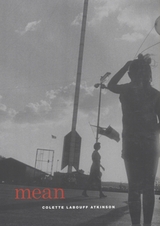
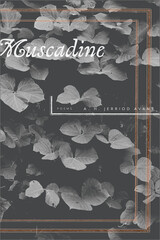
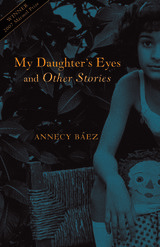

The second book by NAACP Image Award finalist Cameron Barnett, Murmur considers the question of how we become who we are. The answers Barnett offers in these poems are neither safe nor easy, as he traces a Black man’s lineage through time and space in contemporary America, navigating personal experiences, political hypocrisies, pop culture, social history, astronomy, and language. Barnett synthesizes unexpected connections and contradictions, exploring the Tulsa Race Massacre of 1921 and the death of Terence Crutcher in 2016 and searching both the stars of Andromeda and a plantation in South Carolina. A diagnosis from the poet’s infancy haunts the poet as he wonders, “like too many Black men,” if “a heart is not enough to keep me alive.”
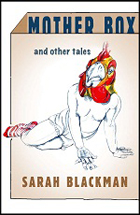
In language that is both barb and bauble, bitter and unbearably sweet, Sarah Blackman spins the threads of stories where everything is probable and nothing is constant. The stories in Mother Box, and Other Tales occur in an in-between world of outlandish possibility that has become irrefutable reality: a woman gives birth to seven babies and realizes at one of their weddings that they were foxes all along; a girl with irritating social quirks has been raised literally by cardboard boxes; a young woman throws a dinner party only to have her elaborate dessert upstaged by one of the guests who, as it turns out, is the moon. Love between mothers and children is a puzzling thrum that sounds at the very edge of hearing; a muted pulse that, nevertheless, beats and beats and beats.
In these tales, the prosaic details of everyday life—a half-eaten sandwich, an unopened pack of letters on a table—take on fevered significance as the characters blunder into revelations that occlude even as they unfold.

Finalist, 2022 Housatonic Book Awards
Craig Blais’s Moon News, a finalist for the 2021 Miller Williams Poetry Prize, deploys the sonnet form to treat subjects as diverse as Gregor Samsa, SpongeBob SquarePants, and the cosmos. Here the form’s capaciousness is engaged to full effect. Blais, who turned to the sonnet as a method for focusing on the present in the early days of his recovery from alcoholism, confronts personal demons, loss, and the possibility for healing. These aren’t your grandmother’s sonnets—though you might find her pea soup recipe or sex tape in this remarkable second collection.
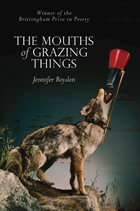
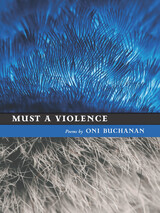
In sounding out the problem of how to respond to violence and to the betrayal and domestication of that which is wild, this book counters with aesthetic violence and disruption of its own, opening the self to the unexpected powers of the senses and to encounters between "wildness" and "domestication" within the self. Though never easy, this openness creates the possibility for an all-enveloping love that touches and joins all animals, both nonhuman and human.


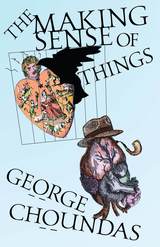
A grand tour of the edges of our lives, where glory and significance riot against the logic of living and the pall of tragedy.
The Making Sense of Things is a collection of twelve stories that pulse with memory, magic, and myth—all our favorite ways of trying to make sense of things.
Readers are treated to vivid and unforgettable characters. A fiercely independent woman puts the man who loves her to unconscionable tests, never guessing that arson, suicide, and canine obesity will yield a magical kind of happiness. A honeymooner in Venice, addled by fever and second thoughts, commits by dumb error a double murder. A brisk lawyer founders when a car wreck claims his son and ex-wife, then discovers that the desperation of grief is a kind of hope.
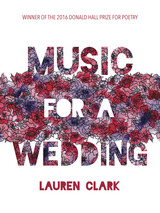
Lauren Clark’s poems move lucidly, depicting beautiful struggles of distrust, dream, grief, and intimacy. They show such conflicts through entrancing narrative drive and song-like abandon. In their unpredictable, unforgettable language, they make pain a tonic for pleasure, sorrow ground for revelation. This is a book that is celebratory, gentle, and queer.
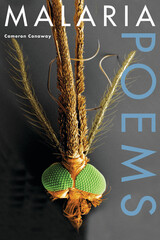
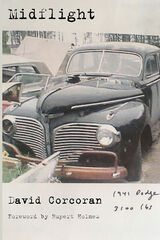
A posthumous collection, Midflight collects the poems written by beloved science editor and journalist David Corcoran in the latter part of his life. Idling in a space between the pastoral and the ordinary, Corcoran’s lyrical world maps the sublime mundanity of nature while exploring memory, dreams, and consciousness itself. Corcoran’s lines abound with figures living and long deceased, with the dead walking onstage as if they never left. Describing the accident that killed his father when he was a toddler in “Here,” Corcoran writes, “the door [opens] in midflight / and [pitches] him out.” In “Last Questions,” he asks, “Are you my brother or / a mockingbird?” While these haunting, vivid poems have an aching prescience, imbued as they are with the awareness of human ephemerality, the gift they proffer, to the writer and the reader at once, is the sense of finding oneself midflight, in midair, betwixt sky and ground, in the free fall of being—going and going and never gone.
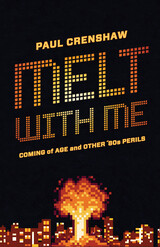
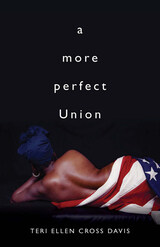
In the tender, sensual, and bracing poems of a more perfect Union, Teri Ellen Cross Davis reclaims the experience of living and mothering while Black in contemporary America, centering Black women’s pleasure by wresting it away from the relentless commodification of the White gaze. Cross Davis deploys stunning emotional range to uplift the mundane, interrogate the status quo, and ultimately create her own goddesses. Parenting, lust, household chores—all are fair game for Cross Davis’s gimlet eye. Whether honoring her grief for Prince’s passing while examining his role in midwifing her sexual awakening or contemplating travel and the gamble of being Black across this wide world, these poems tirelessly seek a path out of the labyrinth to hope.
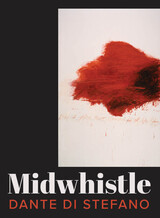
Di Stefano travels through a controlled stream of consciousness as he examines the weights of joy and grief. Bearing witness to the world, Midwhistle unfolds and refolds upon itself, touching on Hiroshima, Bergen-Belsen, Charlottesville, the sacoglossan sea slug, Darwin's Arch, and much more. Stylistically formal, the poem soars and dips, lightly and deftly finding the light in nighttime meditations, as the poet considers “our Unyet son, lemon-sized, / amniotic cosmonaut,” while imagining Heyen at his own age, “the thin black necktie of your / apprenticeship had not been / taken off yet.”
In these examinations we find the poet himself, faced always with a “blinking / cursor,” seeking in the words and lives of other poets what it really means to write poetry. Midwhistle, in its meandering self-reflection and loving expansiveness, is a celebration of the act of poetic creation itself.
your beloved.
—Excerpt from “xxiii. (interlude: prayer for Gaza)”

Winner, Midwest Book Award for Poetry, Midwest Independent Publishers Association
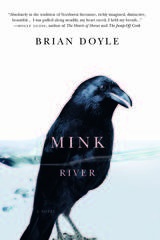
Like Dylan Thomas’ Under Milk Wood and Sherwood Anderson’s Winesburg, Ohio, Brian Doyle’s stunning fiction debut brings a town to life through the jumbled lives and braided stories of its people.
In a small town on the Oregon coast there are love affairs and almost-love-affairs, mystery and hilarity, bears and tears, brawls and boats, a garrulous logger and a silent doctor, rain and pain, Irish immigrants and Salish stories, mud and laughter. There’s a Department of Public Works that gives haircuts and counts insects, a policeman addicted to Puccini, a philosophizing crow, beer and berries. An expedition is mounted, a crime committed, and there’s an unbelievably huge picnic on the football field. Babies are born. A car is cut in half with a saw. A river confesses what it’s thinking…
It’s the tale of a town, written in a distinct and lyrical voice, and readers will close the book more than a little sad to leave the village of Neawanaka, on the wet coast of Oregon, beneath the hills that used to boast the biggest trees in the history of the world.
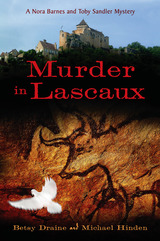
The cave of Lascaux may be closed to the public, but five scholars a day are allowed inside, and Nora Barnes has finagled an appointment. True, she may have fudged a bit in her letter to the authorities, but she does teach art history, and she isn’t about to miss her chance to see the world’s most famous prehistoric paintings. Nora and her high-spirited husband, Toby, are visiting the Dordogne, in the southern French region of the Aquitaine. Aware that the Dordogne’s renown for cave art is matched only by its reputation for delicious cuisine, the couple has also signed up for a cooking class at a nearby château, but they soon find that more than food is on their minds.
During their tour of the cave, another visitor is murdered. When the local inspector pegs Nora and Toby as suspects, they embark on a mission to solve the crime, tracing strange links between a Cro-Magnon symbol and a thirteenth-century religious cult. As they match wits with the crusty inspector, Nora finds herself immersed in the notebooks of a forgotten artist who once lived in the château. In sifting through the artist’s papers and uncovering old secrets, she begins to piece together the motives for the murder. But has she cooked up more trouble than she can handle?
Best Books for General Audiences, selected by the Public Library Reviewers
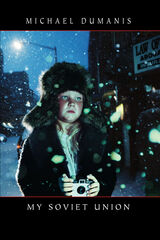
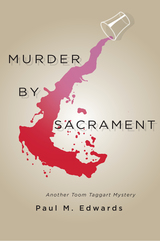
Taggart is annoyed at having to navigate the political structure of the bureaucracy, but he cannot bring himself to leave. He is able to teach, and he likes his proximity to Church archives, local bookstores, and the woman who, according to fate, is still seeing the policeman from The Angel Acronym. All the major characters are back, and Taggart’s romantic rival is given the new murder case, meaning that he has to rely once again on Taggart for his knowledge of the Church’s secrets. This gives both men a reason to keep an eye on the other, making for entertaining situations in a funny, insider send-up of the RLDS community.
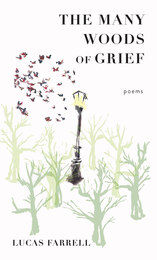
Journeying ever outward, from the achingly ordinary to the mysterious "land where there is no land," the narrator of this collection, equal parts pastoralist and surrealist, explores the vivid in-betweens—between love and loss, hilarity and despair, wild and domestic, real and imagined. Hungry, expressive, and original, these poems glean light from even the darkest of fields.From "Further Along Now"Further along the curves of gesture, the delicateapostrophe, in the tongues of muted suns, we'll findourselves in a clearing, in a meadow of ancient grass,picking apart what has long been picked apart. Furtheralong, the compliments, the tweezers and logic, thelaboratory of hard hats and felt pens and hard headsand clipboards hanging from sky's bloody fender, birddroppings steaming calligraphic so long as the cloudsbecome clouds become clouds and amazed we see insuch preventable warfare our own substancesunchanging. Fountains of ash too diffuse to interpret,too complex to diagnose, I quote the many woods ofgrief, too far alone, too deep.
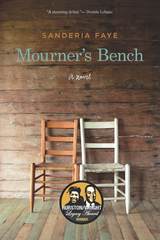
But first, Sarah would need to navigate the growing tensions of small-town Arkansas in the 1960s. Both smarter and more serious than her years (a “fifty-year-old mind in an eight-year-old body,” according to Esther), Sarah was torn between the traditions, religion, and work ethic of her community and the progressive civil rights and feminist politics of her mother, who had recently returned from art school in Chicago. When organizers from the Student Non-Violent Coordinating Committee (SNCC) came to town just as the revival was beginning, Sarah couldn’t help but be caught up in the turmoil. Most folks just wanted to keep the peace, and Reverend Jefferson called the SNCC organizers “the evil among us.” But her mother, along with local civil rights activist Carrie Dilworth, the SNCC organizers, Daisy Bates, attorney John Walker, and indeed most of the country, seemed determined to push Maeby toward integration.
With characters as vibrant and evocative as their setting, Mourner’s Bench is the story of a young girl coming to terms with religion, racism, and feminism while also navigating the terrain of early adolescence and trying to settle into her place in her family and community.
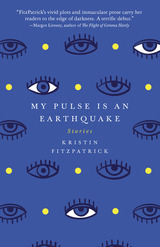
The nine stories in My Pulse Is an Earthquake take place in the clutches of grief. Characters struggle to make sense of sudden losses of life, love, and community. From 1970 to the present day, children and young adults from the Rockies to the Appalachian Mountains guide readers through the valleys of their lives as dog breeders, immigrants, Catholic school delinquents, rookie policewomen, drummers, ballerinas, teenage brides, and an accountant who keeps a careful inventory of losses.
In each story, we see the darkness that can surface during the happy moments in life—weddings, births, promotions, the opening night of a director’s favorite play, or the best performance of a dancer’s career, when no one important is there to watch. We enter daydreams and night terrors where the dead are within reach, pointing out how they could have been saved. We wear their clothes and carry their teddy bears or vinyl records everywhere. We crawl around in caves and pound hammers into walls until our own hearts stop beating.
This collection explores how the unexpected harm to young, vibrant loved ones—from murder, kidnapping, battle, accident, natural disaster, swift illness, or stillbirth—can rupture families, and how the most unlikely healers can bring together those who remain.
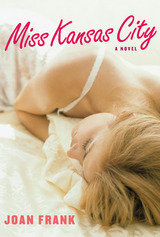
Friendless and reclusive, Alex Blue commutes two hours each way to a job that serves mainly as a place to bide time, until one day she meets the wealthy, worldly—and married—owner of a high-concept Bay Area lifestyle company. Meanwhile, the melancholy and closeted Morton Levi, yearning for a loving partner but stung by prior experience, lives a secret life outside the software information company he manages with a steady, efficient hand—the same company where Alex works.
As ominous rumors of mergers and layoffs swirl, and Alex and Mort are pushed to the emotional brink by the vagaries of love, they find themselves forging an unexpected alliance. Miss Kansas City is a moving exploration of the notion of possibility, and of a seasoned hope that can emerge on the other side of loneliness and loss.
Joan Frank is the author of the story collection Boys Keep Being Born, which was both a Bay Area Book Reviewers’ Award and Paterson Fiction Award finalist. Her stories appear in many journals and anthologies, including The Antioch Review,The Iowa Review, and Salmagundi. She is a MacDowell Colony and VCCA Fellow, Pushcart Prize nominee, recipient of a Barbara Deming Grant, and winner of the Iowa Fiction Award and Emrys Fiction Award. She lives in Northern California. Miss Kansas City is her first novel.

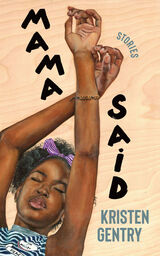
“A celebration of Black family life that will make you laugh and cry in equal measure.” —Kirkus Reviews (starred review)
“The collection will reshape what you think about the region and the people that inhabit it.” —Debutiful
“Surprising and revelatory. . . . I love this book.” —Stephanie Powell Watts, author of No One Is Coming to Save Us
“This book has staying power.” —Crystal Wilkinson, author of Praisesong for the Kitchen Ghosts
Original stories of Black family life in Louisville, Kentucky, for readers of Dantiel Moniz (Milk Blood Heat) and Kai Harris (What the Fireflies Knew).
The linked stories in Mama Said are set in Louisville, Kentucky, a city with a rich history steeped in tobacco, bourbon, and gambling, indulgences that can quickly become gripping and destructive vices. Set amid the tail end of the crack epidemic and the rise of the opioid crisis, Mama Said evokes Black family life in all its complexity, following JayLynn, along with her cousins Zaria and Angel, as they come of age struggling against their mothers’ drug addictions.
JayLynn heads to college intent on gaining distance from her depressed mother, only to learn that her mother’s illness has reached a terrifying peak. She fears the chaos and instability of her extended family will prove too much for her boyfriend, whose idyllic family feels worlds, not miles, apart from her own. When bats invade Zaria’s new home, she is forced to determine how much she is willing to sacrifice to be a good mother. Angel rebels on Derby night, risking her safety to connect with her absent mother and the wild ways that consumed her.
Mama Said separates from stereotypes of Black families, presenting instead the joy, humor, and love that coexist with the trauma of drug abuse within communities. Kristen Gentry’s stories showcase the wide-reaching repercussions of addiction and the ties that forever bind daughters to their mothers, flaws and all.
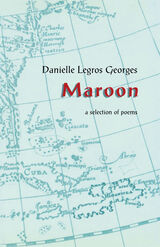
Maroon is the debut collection of Haitian-American poet Danielle Legros Georges, who writes of the pain of exile, the beauty of nature, and the delights of love in highly rhythmic, highly original language. The range of her voice is remarkable— from the comic to the tragic to the lyric. Her poetry is electric with an overpowering zest for life and vitality of language, as she examines the traumatic experiences that brought her parents to America and searches for a more complete understanding of self.
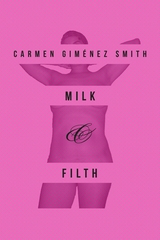
Adding to the Latina tradition, Carmen Giménez Smith, politically aware and feminist-oriented, focuses on general cultural references rather than a sentimental personal narrative. She speaks of sexual politics and family in a fierce, determined tone voracious in its opinions about freedom and responsibility.
The author engages in mythology and art history, musically wooing the reader with texture and voice. As she references such disparate cultural figures as filmmaker Lars Von Trier, Annie from the film Annie Get Your Gun, Nabokov’s Lolita, Facebook entries and Greek gods, they appear as part of the poet’s cultural critique.
Phrases such as “the caustic domain of urchins” and “the gelatin shiver of tea’s surface” take the poems from lyrical images to comic humor to angry, intense commentary. On writing about “downgrading into human,” she says, “Then what? Amorality, osteoporosis and not even a marble estuary for the ages.”
Giménez Smith’s poetic arsenal includes rapier-sharp wordplay mixed with humor, at times self-deprecating, at others an ironic comment on the postmodern world, all interwoven with imaginative language of unexpected force and surreal beauty. Revealing a long view of gender issues and civil rights, the author presents a clever, comic perspective. Her poems take the reader to unusual places as she uses rhythm, images, and emotion to reveal the narrator’s personality. Deftly blending a variety of tones and styles, Giménez Smith’s poems offer a daring and evocative look at deep cultural issues.
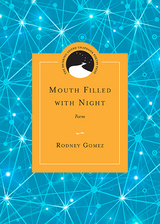
The winner of the Drinking Gourd Chapbook Poetry Prize, Rodney Gomez’s collection Mouth Filled with Night employs familiar emblems of Mexican American identity to repeatedly subvert expectations while intensifying the dilemmas of affiliation. The poems run beyond more conventional ideas of agency, identity, and experience, creating a newly invigorated imaginative space. As a collection, Mouth Filled with Night gains particular momentum—a pitched anxiety that slowly grows throughout the volume—to create a poetic experience unique to the chapbook form.
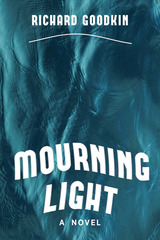
Told in a series of flashbacks and remembrances, the novel concludes with a whirlwind of revelations that both complicate and resolve Reb’s view of his world and his lover.
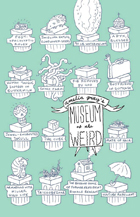
Winner of FC2’s American Book Review/Ronald Sukenick Innovative Fiction Prize
A stunning collection of stories that reveal wondrous play and surreal humor
A monogrammed cube appears in your town. Your landlord cheats you out of first place in the annual Christmas decorating contest. You need to learn how to love and care for your mate—a paring knife. These situations and more reveal the wondrous play and surreal humor that make up the stories in Amelia Gray’s stunning collection of stories: Museum of the Weird.
Acerbic wit and luminous prose mark these shorts, while sickness and death lurk amidst the humor. Characters find their footing in these bizarre scenarios and manage to fall into redemption and rebirth. Museum of the Weird invites you into its hallways, then beguiles, bewitches, and reveals a writer who has discovered a manner of storytelling all her own.

In her translation of The Merry Wives of Windsor, Dipika Guha updates the language of Shakespeare’s comedy through the lens of our current moment. Guha maintains the humor at the heart of the play while making it accessible for both performers and audiences.
This translation was written as part of the Oregon Shakespeare Festival’s Play On! project, which commissioned new translations of thirty-nine Shakespeare plays. These translations present the work of "The Bard" in language accessible to modern audiences while never losing the beauty of Shakespeare’s verse. These volumes make these works available for the first time in print—a new First Folio for a new era.
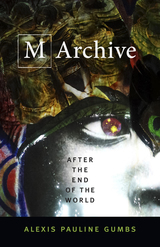

This hilarious send-up of outlandish Southern characters includes a beautician, a luncheonette waitress, a radio evangelist, the widow of a gas and oil distributror and the residents of a fictional mobile home park in Arkansas as they find uproarious ways to enjoy life, needle each other, and remember the dear-departed.
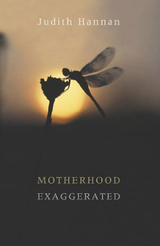
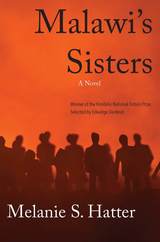
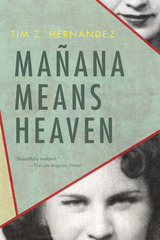
When they meet, Franco is a migrant farmworker with two children and a failing marriage, living with poverty, violence, and the looming threat of deportation, while the “college boy” yearns to one day make a name for himself in the writing world. The significance of their romance poses vastly different possibilities and consequences.
Mañana Means Heaven deftly combines fact and fiction to pull back the veil on one of literature’s most mysterious and evocative characters. Inspired by Franco’s love letters to Kerouac and Hernandez’s interviews with Franco, now in her nineties and living in relative obscurity, the novel brings this lost gem of a story out of the shadows and into the spotlight.
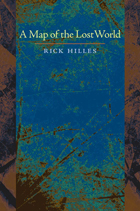
The poems that make up A Map of the Lost World range from tightly-wrought shorter lyrics to longer autobiographical narratives to patterns of homage (in several forms) of poets that Hilles admires and emulates (including Richard Hugo, James Wright, James Merrill and Larry Levis) to extended voice-driven meditations, one in the voice of a German Jewish woman, a prisoner who would escape a French concentration camp and go on to fight in the French resistance, to other efforts to confront history and not be devoured by history, and to locate, even resuscitate, friends lost to death, if only provisionally; though each poem in A Map of the Lost World is highly crafted and diversely rendered, in this collection, each poem finds its unifying impulse in it’s maker’s desire to span vast distances to reach loved ones, beloved others, the various families of friends, fueled by an almost gymnastic imagination that vaults itself into almost any space—going to almost any length—sustained by the various forms of love, which, after all, may be as close as any of us has come (in this or any life) to knowing and warming ourselves, if not also at times being scalded by, the immortal fires of the Infinite.

Migrant Psalms gives us a rare look inside a Panamanian experience of migration, describing the harsh realities of mothers, children, and teens who entered the United States—or tried to do so. Holnes’s poems find the universal through specificity; their exploration of expatriation, assimilation, and naturalization transcends the author’s personal experience to speak to what it means to be “other” anywhere.
The collection begins with “Kyrie,” a coming‑to‑America chronicle that spans three years in Texas, modeled after the liturgical Christian prayer Kyrie Eleison (Lord, have mercy). Other poems experiment with macaronic language and form to parallel shifts in the speaker’s status from immigrant to citizen, ending with “The 21st Century Poem,” which probes what’s “real” in today’s New York City. Through the speaker’s quest to become an American, this collection asks: Who are we becoming as individuals, as a society, as a nation, as a world? And is faith enough to enact change? Or is it just the first step?
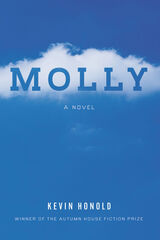
This debut novel tells the story of nine-year-old Raymond, nicknamed “Ray Moon” by Molly, his adoptive caretaker, a waitress, and the former partner of his recently deceased uncle. These two outcasts rely on one another for survival, and their bond forms the heart of this book. Living in a trailer atop a mesa in the high desert of New Mexico in 1968, Raymond ages quickly amid hostile circumstances. With the help of a keen imagination that Molly inspires, he navigates various forms of loss and exploitation amid enduring hardship.
Kevin Honold’s deft and trance-like prose is interspersed with sharp insights and brings attention to the displacement of Native Americans, the hardships of capitalism, the ills of misogyny, and the raw hurt of living a displaced or marginalized life. This is a story of endurance, memory, and unceasing change.
Molly was selected by Dan Chaon as the winner of the 2020 Autumn House Fiction Prize.

Winner of FC2’s Ronald Sukenick Innovative Fiction Prize
The stories in My Haunted Home delve in startling ways into the lives of the obsessed, the grieving, and the truly haunted. Victoria Hood conjures a shifting range of narrators through an unstable range of worlds where mothers might be dead, girls compulsively shove peanuts inside their ears, agoraphobia traps people inside their houses, and cats won’t eat your soup. In “The Teeth, the Way I Smile,” a daughter who looks like her dead mother manifests grief both in her house and her body. In “Smelly Smelly,” a woman slowly comes to realize her boyfriend has been dead for weeks. In “You, Your Fault,” we explore the unfolding love of two women who love every part of each other—including the parts that fixate on arson and murder.
Each story is a bite-size piece of haunting candy on a necklace of obsession holding them together. Hood probes the worlds of what can be haunted, unpacking the ways in which hauntings can be manifested in physical forms, mentally harvested and lived through, and even a change in what is haunting.

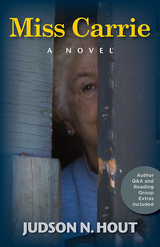
“Set in Arkansas during World War II, Hout’s touching story of an orphaned boy's relationship with the inhabitant of a small town's "haunted house” will keep you guessing, right up to the satisfying ending. Another endearing novel from Judson Hout."
--Cindy Ward, Dallas, Texas
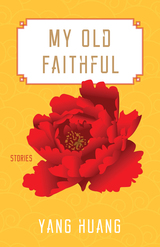
Showing both the drama of familial intimacy and the ups and downs of the everyday, My Old Faithful introduces readers to a close-knit Chinese family. These ten interconnected short stories, which take place in China and the United States over a thirty-year period, merge to paint a nuanced portrait of family life, full of pain, surprises, and subtle acts of courage. Richly textured narratives from the mother, the father, the son, and the daughters play out against the backdrop of China's social and economic change.
With quiet humor and sharp insight into the ordinary, Yang Huang writes of a father who spanks his son out of love, a brother who betrays his sister, and a woman who returns to China after many years to find her country changed in ways both expected and startling.
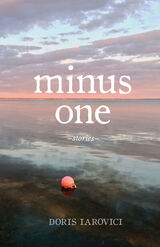
Woven through this slim and powerful volume are astute observations on how pain and grief can be inherited from one generation to the next. With tenderness and honesty, Doris Iarovici explores the plunging depths of the human experience, lingering on moments of familial warmth and joy but never shying away from conflict and tension. These stories reveal glimmers of hope and possibility, even in our darkest times.
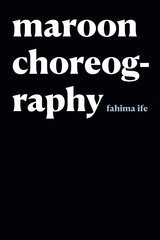
Duke University Press Scholars of Color First Book Award recipient
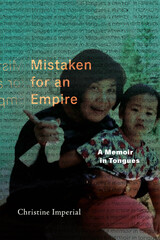
Born in postcolonial Philippines into a family—and country—with a complicated history, Christine Imperial learns from a lifetime of experiences that there is no easy path to understanding or belonging. Setting out to renew her relationship to Tagalog, the language she had previously distanced herself from, she contends with the meaning of her dual Philippine/US citizenship along with the conditions surrounding it, reflecting on imperialist and class systems and the history of her birth country. Beginning with an attempt to translate into Tagalog Rudyard Kipling’s “The White Man’s Burden”—Kipling’s ode to American imperialism after the US takeover of the Philippines—Imperial reflects on and writes against Kipling’s poem as she unspools her fractured family’s story.
Reckoning with both the anguish and promise of hybridity, Mistaken for an Empire expands into an exploration of the author’s relationship to English and Tagalog, history, family and state, origin and belonging. By interrogating the many intricacies of individual and national identity and the legacies that shape them, Imperial grapples with the tangled nature of allegiance, whether it be to family, to country, or to self.
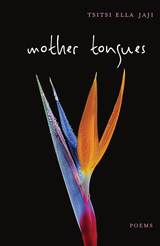
Winner of the 2018 Cave Canem Northwestern University Press Poetry Prize
Tsitsi Ella Jaji’s second full-length collection of poems, Mother Tongues, begins at home, with the first words and loves we learn, and the most intimate vows we swear. How deep does your language go back? Jaji’s artful verse is a three-tiered gourd of sustenance, vessel, and folklore. The tongues speak the beginnings and the present; they capture and claim the losses, the ironies, and a poet’s human evolution. Mother Tongues is a collection of language unto itself that translates directly to the heart.
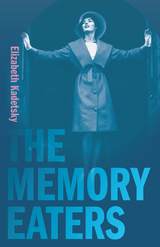
As her mother loses her grasp on their shared history, Elizabeth Kadetsky sifts through boxes of the snapshots, newspaper clippings, pamphlets, and notebooks that remain, hoping to uncover the memories that her mother is actively losing as her dementia progresses. These remnants offer the false yet beguiling suggestion that the past is easy to reconstruct—easy to hold.
At turns lyrical, poignant, and alluring, The Memory Eaters tells the story of a family's cyclical and intergenerational incidents of trauma, secret-keeping, and forgetting in the context of 1970s and 1980s New York City. Moving from her parents' divorce to her mother's career as a Seventh Avenue fashion model and from her sister's addiction and homelessness to her own experiences with therapy for post-traumatic stress disorder, Kadetsky takes readers on a spiraling trip through memory, consciousness fractured by addiction and dementia, and a compulsion for the past salved by nostalgia.
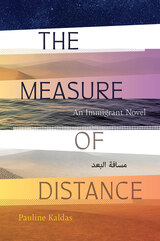
This family saga begins when Salim, the eldest of three brothers, moves to Cairo at the start of the twentieth century with dreams of opening his own bakery. His decision to leave his ancestral village of Kom Ombo despite his parents’ objections reverberates across generations, kicking off a series of migrations that shape the lives of his family and their descendants throughout the decades that follow. These migrations only intensify after the revolution of 1952—with Misha, Salim’s eldest grandchild, being the first to flee to “Amreeka,” his annual phone calls home becoming briefer and briefer with each passing year.
Culminating with the 2011 protests in Tahrir Square, Pauline Kaldas’s The Measure of Distance is a detailed portrait of immigration against the backdrop of an Egypt in constant flux and an America that is always falling short of the fantasy. Alternating between tales of those who migrate and those who stay, this expansive novel follows its characters as they determine the course of their lives, often choosing one uncertainty over another as they migrate to new lands or plant their roots more firmly in their homeland.
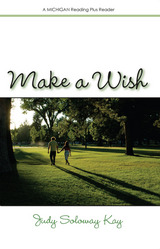
Genre: Romance
Length: about 15,000 words
Level: 4th grade
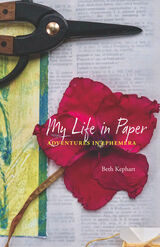
Kephart’s obsession with paper began in the wake of her father’s death, when she began to handcraft books and make and marble paper in his memory. But it was when she read My Life with Paper, an autobiography by the late renowned paper hunter and historian Dard Hunter, that she felt she had found a kindred spirit, someone to whom she might address a series of one-sided letters about life and how we live it. Remembering and crafting, wanting and loving, doubting and forgetting—the spine and weave of My Life in Paper came into view.
Paper, for Kephart, provides proof of our yearning, proof of our failure, proof of the people who loved us and the people we have lost. It offers, too, a counterweight to the fickle state of memory.
My Life in Paper, illustrated by the author herself, is an intimate and poignant meditation on life’s most pressing questions.

Under the influence of broadcasts such as public radio’s “Marketplace” (a daily roundup of stock reports and business news), Daniel Khalastchi composed a series of character-driven poems whose recurrent narrator is physically and mentally manipulated while the world around him takes little notice. Through their chaos and horror, these poems ask a reader to question the ways in which our careening healthcare system, crumbling financial/housing/job markets, and war on multiple fronts are actually affecting us — both inside and out.
READERS
Browse our collection.
PUBLISHERS
See BiblioVault's publisher services.
STUDENT SERVICES
Files for college accessibility offices.
UChicago Accessibility Resources
home | accessibility | search | about | contact us
BiblioVault ® 2001 - 2024
The University of Chicago Press






